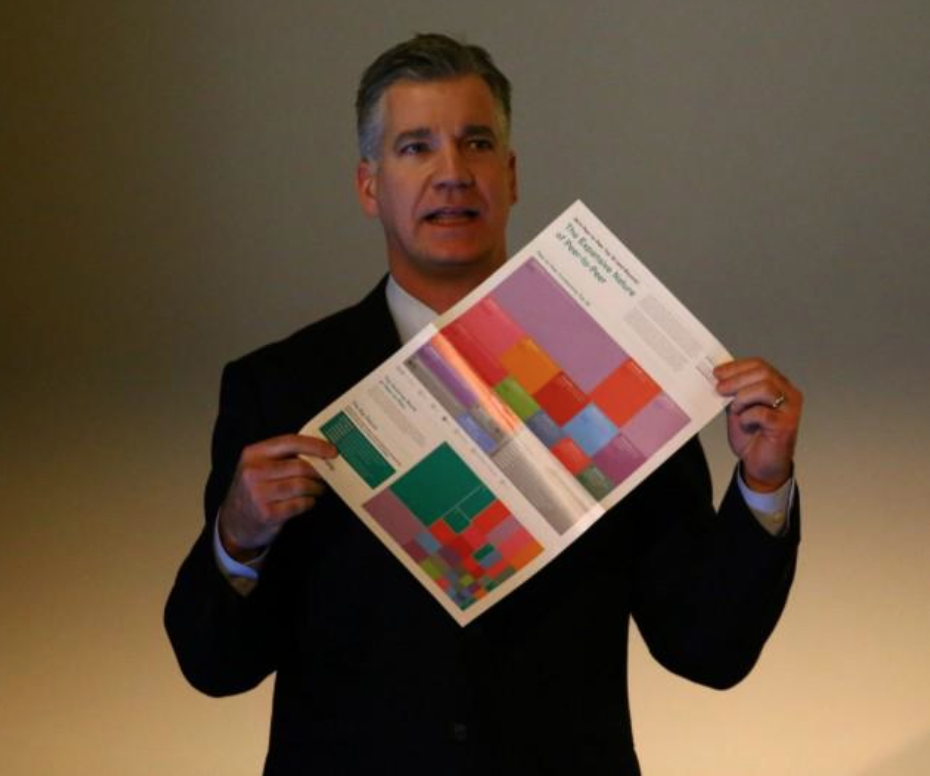 Given the somewhat prickly political climate of late, I’ve noticed quite a few friends, pundits, and colleagues uttering disheartened comments that conclude with the statement: “I mean, the whole system is broken. The entire system is the problem.” And I’ve noticed that when someone makes this statement in conversation, everyone else kind of sighs and nods in agreement, and then looks down in discontent at their phone or computer screen or plate or glass of wine. The conversation shuffles on to other topics, and everyone feels vague despair and a general resignation.
Given the somewhat prickly political climate of late, I’ve noticed quite a few friends, pundits, and colleagues uttering disheartened comments that conclude with the statement: “I mean, the whole system is broken. The entire system is the problem.” And I’ve noticed that when someone makes this statement in conversation, everyone else kind of sighs and nods in agreement, and then looks down in discontent at their phone or computer screen or plate or glass of wine. The conversation shuffles on to other topics, and everyone feels vague despair and a general resignation.
I notice I am hearing this more in Plenty’s fundraising engagements, too, as well as in our strategy and leadership work. We often are asked to either help create peer-to-peer campaigns from scratch or repair programs that have lost their way – and increasingly, our clients are asking us to apply our person-to-person, passion-to-passion view of the world to their overall organizational strategy, too.
And so we’re usually uncovering a wide range of issues that run the gamut from organizational to personal. We take a look at fundraising asks and event mechanics and technology gaps and income models, but we quickly find ourselves looking at staff structure, resource capacity, organizational positioning, overall leadership alignment, and personal morale.
It doesn’t take very long treading this kind of territory to hear one of our clients say, “I mean, the whole system is broken. The entire system is the problem.” In their case, they aren’t talking about a vitriolic presidential campaign; they are talking about their own organization.
Perhaps they are referring to the fact that their budget targets were set without their involvement, and so they are being asked to hit goals they don’t believe are achievable. (This happens quite frequently.)
Or maybe they are talking about a dynamic where the field staff who handle the execution of their campaign report into a different divisional leader, and so they are trying to manage the resources they need for success through a dotted rather than direct line. (This happens a lot, too.)
Or possibly they are alluding to a problem in program delivery, where there is not necessarily quantifiable impact of the organization’s work and yet they are being asked to find donors to fund it without having a clear idea of what “it” is. (Again, a very common dynamic.)
Or potentially they are whispering about a situation in which they are being asked to grow their peer-to-peer donor base by 30% but because of an archaic incentive system, none of the peer-to-peer donors counts against their fundraising goal. (Amazingly, this seems to be widespread as well.)
Or maybe it is something else, just one of a variety of other issues that seem 1) outside of their control and 2) amorphous, systemic, unchanging, and unchangeable.
And as they air their concerns and vent their frustrations, they usually conclude by throwing up their hands and saying, “Our system is just broken.”
Now, I don’t want to claim that fixing large organizations is easy; repairing even small teams can take a heck of a lot of effort. That’s one reason we finally developed our own strategy model for idealists trying to create social impact. Change requires rigor and method. It also requires deep passion. Our strategic model starts with values, rather than goals. The goals come later, after we get the leadership team to agree on what they really care about. It’s incredibly powerful.
I also don’t want to say any one person’s frustrations are misguided or imagined. I know first-hand how belittling and soul-sucking it can be to feel like you are at the mercy of a massive bureaucracy, an antiquated decision-making framework, or “the way we’ve always done it.”
 Still, I think we give the system too much credit. There is no system. There are only people. Every team, organization, government, and set of regulations was made up of or put in place by someone just like you. Someone can influence it. Someone can over-rule it. Someone can change it, too.
Still, I think we give the system too much credit. There is no system. There are only people. Every team, organization, government, and set of regulations was made up of or put in place by someone just like you. Someone can influence it. Someone can over-rule it. Someone can change it, too.
When we hear our clients expressing that they are powerless, our number one priority is to help them understand that they are powerful. We help them demystify and then deconstruct the system that is working against them. “Our budget never gives us enough resources” becomes, “Okay, who creates the budget?” When we hear, “The finance committee of the board, and they never know what is going on” we ask, “Who leads the finance committee?” When we hear, “It’s the same person who has led it for the past four years, and she’s impossible to reach,” we ask, “Who is her administrative assistant?” Wouldn’t you know it, we then learn that the chair of the finance committee is overjoyed that someone from the staff finally reached out to her.
Here’s the truth: The system is designed to make you think it is bigger and more important and more sophisticated than it is. But it is just rules, put in place by people – people exactly like you. You can change it, if you want to, by finding those people and persuading them that your viewpoint is more informed, more ethical, more effective, or all three. It might not be easy, but it is always worth doing.
For the people at mercy of a convoluted set of parameters and self-reinforcing relationships that only seek to stymie, frustrate, or worse, outright harm them, the statement that “the whole system is broken” is the ultimate lament. For the people who use that convoluted set of parameters and self-reinforcing relationships to hide from true leadership, take the easy way out, or worse, outright victimize others, the statement that “I wish I could do more, but this is the system we agreed to” is the ultimate cop-out.
You’ve got this. You’re smarter and more powerful than you think. There is no system. The system is just people – people exactly like you. Except you’re more motivated and more passionate to get it right. Right?
Ready to get rid of the outdated systems, methods, and practices that are holding you back from real fundraising growth? We can help.
And if you’re going to be at the Nonprofit Technology Conference in San Jose this week, please join Plenty’s Jennifer Mulholland and Jeff Shuck as they consider issues of frustration, change, leadership, and positive transformation with JDRF’s Marisa Hull for their session “The Good, The Bad, and The Ugly: An Unfiltered Conversation about Culture, Leadership, and Change” at 10:30 on Friday, March 25 in room 210E. We’d love to see you there.
Share this
You May Also Like
These Related Stories

The 2015 P2P Professional Forum Conference: Fundraising, Impact, & BBQ

The Unexpected Nonprofit Job Candidate You Need



No Comments Yet
Let us know what you think